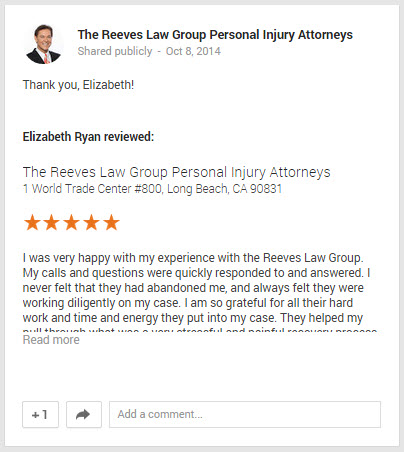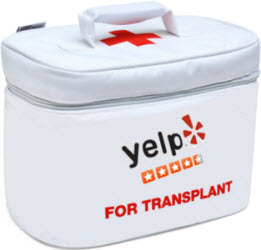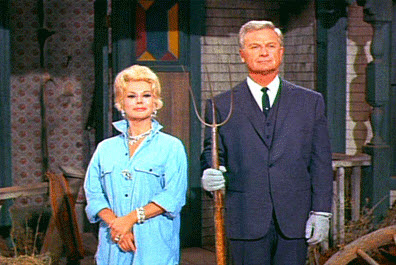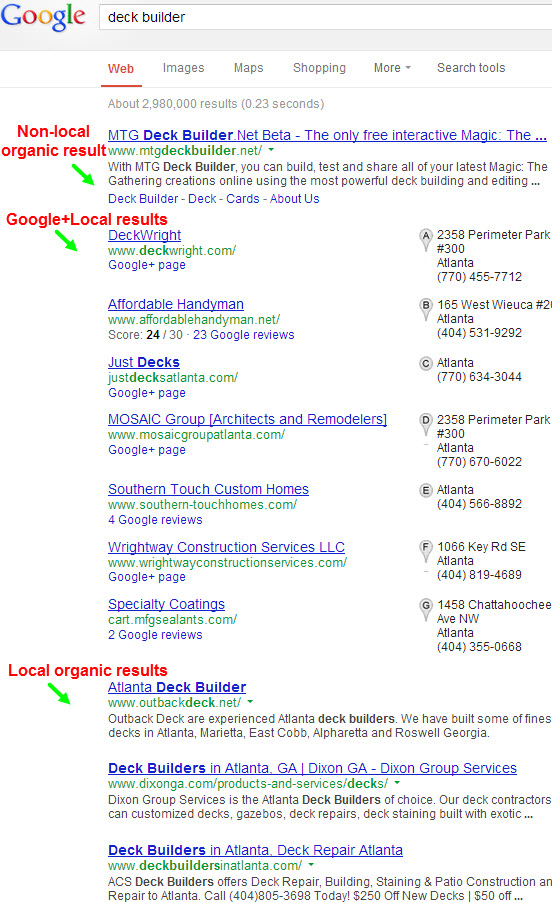
There are two intertwined myths about duplicate content:
1: That Google is on the warpath against it, penalizing sites left and right.
2: That duplicate content is a thing – one specific problem.
Neither is true, because of one fact: there are many different types of duplicate content. (Google says so, too.)
That’s even more true in local SEO – because to rank well in local search you’re not just dealing with your site, but also with a bunch of listings.
Some types of duplicate content hurt your rankings, whereas many are just a mild drag or are harmless.
It’s not bad SOP to try to make all your content everywhere unique. But sometimes it’s just not necessary, and you don’t want it to suck up too much of your time and distract you from stuff that really matters.
I can think of at least 12 types of duplicate content. Pay attention to the types that (at least in my experience) might hurt you, and don’t spend time worrying about the harmless ones.
Bad:
1. Mirror sites
Same content, different domains. The rationale is that maybe both the sites will rank well, or that one of them will have a call-tracking number to “prove ROI!”
Google’s warnings are strongest for wholesale duplicate content between sites. In my experience, using mirror sites never ends well. Either one site ranks OK and the other doesn’t, or neither ranks well. Mirror sites confuse Google and would-be customers alike.
2. Duplicate / near-duplicate Google listings
Google listings that have nearly identical names, addresses, and phone numbers can hurt your rankings. Use Michael Cottam’s excellent duplicate-finder tool to uncover them.
By the way, “practitioner listings” often aren’t a problem, in my experience. (In other words, if you’re a doctor, lawyer, real-estate agent, or insurance agent, it’s OK if you have a listing in your name and the practice or agency has one in its name.)
3. Duplicate citations
Not a big deal if you have 2 very similar listings on, say, MojoPages or Brownbook – one of those little sites. But do you have one YellowPages.com listing named “Acme Dynamite” and another named “Acme Dynamite Company”? Delete one of them, or else Google might scrape YP (a trusted third-party source) and create an unwanted Google Places listing for you.
Also, you should be gung-ho about removing duplicate listings on highly visible sites like YP, Yelp, and Facebook. To the extent you get reviews on those sites, you’ll want to get the reviews piled up on one listing, rather than spread them thin between several listings.
4. Internal duplicate title tags
Does your “Services” page have the same title tag as your homepage? Google won’t penalize you or anything; it’s just that you’ve lost an opportunity to help different pages rank for different search terms.
5. Duplicate title tags between sites
Similar problem as in point #4.

But there’s an additional problem: if you have multiple sites that include the name of your business in the title tags, you may mess mess up your brand-name search traffic. When people search for your business by name you want one site to come up in Google, so that everyone goes to that site. Why? Because Google loves brands. The more you can seem like one (i.e. popular offline and online), the better. But you don’t want to confuse Google as to what site represents your “brand.”
6. Duplicate / near-duplicate pages on your site – particularly “city” pages
I’ve never noticed a site get penalized specifically for barfing up two dozen pages that target different cities by swapping out the city names (“HVAC Contractors Atlanta,” “HVAC Contractors Decatur,” etc.).

But a few problems remain: (1) those clone pages often don’t rank well, (2) even if they do rank well they eventually drop because users pogo-stick away from them, and (3) they usually don’t produce many phone calls.
Low-quality “city” pages aren’t as much a drag on your rankings as they are a giant lost opportunity. Yours don’t have to suck, though.
7. Reviews cross-posted by customers
Scenario: a customer writes you a nice review on Yelp, so you ask her to write a review on Google+. Just make sure it’s not the same review. Make sure the words are significantly different, or the review might get filtered on both sites. (By the way, Yelp and Google are the only sites that aggressively filter reviews – at least as far as I know.)
Not a problem:
8. Reviews that you copy and put on your site
This isn’t against Yelp’s or Google’s (or other sites’) policies, and I’ve seen so many businesses copy and paste their reviews onto their sites that I’ve concluded it’s just not a problem.
9. Duplicate descriptions between listings
You can use a different description on Yelp from the one you use on Manta, or you can have those descriptions and all your others can be pretty much the same. (I say “pretty much” because different sites have different length requirements for your blurb, so a little variation is inevitable.) Doesn’t matter.
10. Website content cross-posted on listings
Want to use a blurb from your homepage as your description on Angie’s List? Harmless.
11. Google+ posts duplicated on multiple Google Places / Plus pages
If you’ve got multiple locations – each with a Google Places page – it’s OK to publish the same post in each one’s “Posts” stream.
12. Re-posting Google+ reviews
Google allows this. Very few businesses know that they can show off their Google reviews in their “Posts” stream.

—
Can you think of any other types of duplicate content, in the context of local SEO?
Which ones have you found to be harmful vs. harmless?
Leave a comment!

 Are you creating pages on your site that target specific cities where you want to rank well in the
Are you creating pages on your site that target specific cities where you want to rank well in the 


